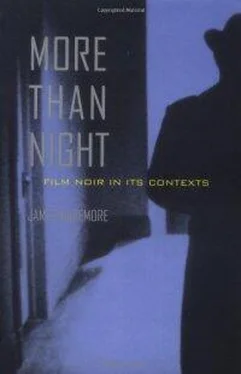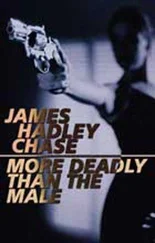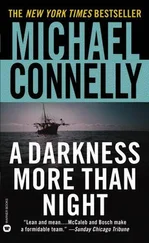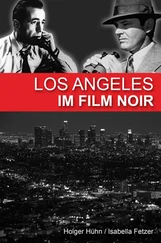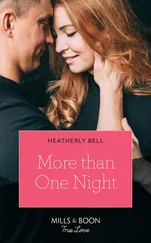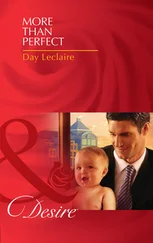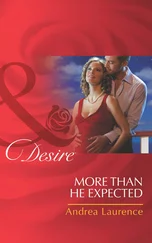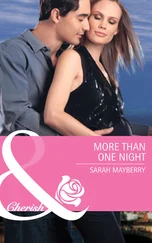19. André Bazin, "Six Characters in Search of Auteurs ," in Cahiers du Cinéma: The 1950s, ed. Jim Hillier, trans. Liz Heron (Cambridge, Mass.: Harvard University Press, 1985), 37. Hereafter, Bazin's essay in Hillier's anthology is cited parenthetically in the text.
20. For information on Duhamel's involvement with surrealism, see Marcel Jean, ed., The Autobiography of Surrealism (New York: Viking Press, 1980). See also José Pierre, ed., Investigating Sex: Surrealist Discussions, 19281932, trans. Malcom Imrie (London: Verso, 1992).
21. Both the plots and the dialogue created confusion, and this confusion was not always to the liking of American reviewers. In The New Republic (24 August 1944), Manny Farber said that Double Indemnity was "the most incomprehensible film in years." He praised it for being "less repressed than usual," but he disliked the incessant talk: "I think you could get at the Underlying Thread of this film the same as you could in The Maltese Falconby being allowed to take the dialogue home with you to study at length."
22. Louis Aragon, "On Decor," in The Shadow and Its Shadow: Surrealist Writings on Cinema, ed. Paul Hammond (London: BFI, 1978), 29. I am indebted to Hammond's introduction to this volume, which provides an excellent commentary on surrealist film criticism.
23. Silver and Ward, Film Noir , 372. Among the other French writers who might be mentioned in this context is Gerard Legrand, a member of the surrealist movement, who wrote extensively on noir for Positif.
24. Marcel Duhamel, preface to Borde and Chaumeton, Panorama du film noir américain , vii; my translation. Hereafter, Borde and Chaumeton's work is cited parenthetically in the text. Duhamel alludes to several unnamed gangster films starring George O'Brien, and to William Wellman's Chinatown Nights. The Wellman film, however, was not released until 1929.
25. In the postscript to Panorama du film noir américain, Borde and Chaumeton also dicuss the James Bond movies. Notice that the first James Bond film, Dr. No, makes the protagonist seem rather like a cold-blooded killer and borrows several ideas from Fritz Lang's Mabuse pictures of the 1920s and 1930s. The second film, From Russia with Love, is vaguely indebted to the Orient Express thrillers of Eric Ambler and Graham Greene, which are strongly associated with noir.
26. Untranslated, the text reads, " onirique, insolite, érotique, ambivalent, et cruel." I have translated insolite as "bizarre," but there is no good English equivalent. It connotes the gothic, somewhat like the Freudian unheimlich, but with a more shocking or horrific effect. Judging from its frequency, insolite is the most important adjective in the Panorama.
27. For a brilliant discussion of Julliette, see Angela Carter, The Sadeian Woman (New York: Pantheon, 1979). Carter points out that in contrast with Sade's Justine, who is derived from the virginal heroines of the sentimental novel, Julliette appropriates the values of patriarchy and uses them for her own ends. In one sense a radical, she is also a figment of the male imagination and a product of the system she exploits. Her most obvious representation in recent cinema is the antiheroine of John Dahl's The Last Seduction (1994), who uses all the men in her path and rides off victorious, in the back seat of a chauffeur-driven limousine.
28. Compare Sharon Stone's comments to a reporter about the role she played in Basic Instinct (1992): "I never thought the character really cared about sex at all. That's why it was so easy for her to use her sexualityit had no value." Parade Magazine (30 January 1994): 10.
29. Rebecca West quoted in Roy Hoopes, Cain: The Biography of James M. Cain (New York: Holt, Rinehart and Winston, 1982), xiii. Hereafter, Hoopes's work is cited parenthetically in the text.
30. Hence the French treated Hollywood as if it were filled with primitives, unburdened by European sophistication. Godard, for example, argued that "the Americans, who are much more stupid when it comes to analysis, . . . have a gift for the kind of simplicity which brings depth. . . . The Americans are real and natural" (quoted in Hillier, Cahiers du Cinema, 8).
31. André Gide quoted by Diane Johnson, Dashiell Hammett: A Life (New York: Random House, 1983), 322 n. 7. See also Perry Miller, "Europe's Faith in American Fiction," Atlantic Monthly (December 1951): 5056.
32. Jean-Paul Sartre, "The Situation of the Writer in 1947," in What Is Literature? trans. Bernard Frechtman (New York: Washington Square Press, 1966), 156. Hereafter, this work is cited parenthetically in the text.
33. Sartre quoted by Dana Polan, Power and Paranoia: History, Narrative, and the American Cinema, 19401950 (New York: Columbia University Press, 1986), 252.
34. For a discussion of this tendency, see Robert Denoon Cummings's introduction to The Philosophy of Jean-Paul Sartre (New York: The Modern Library, 1966), 347.
35. Like all other French critics, Eric Rohmer believed that film noir had reached a dead end by the mid 1950s. He remarked that, for his generation, "the charm of these works lies in the delirious romanticism of their heroes and the modernism of their technique. Hollywood, shy of them for so long, suddenly noticed their existence, and a breath of the avant-garde made the studios tremble. What came of it? There is now enough distance for us to judge: the answer is very little, if anything." Rohmer, "Rediscovering America," in Hillier, Cahiers du Cinema, 91.
36. The political context in Paris is sometimes obscure, but in general the existentialist-inspired readings of film noir tend to be less activist or overtly left wing than the surrealist readings. Bazin himself was a liberal Catholic who appears to have been influenced by Emmanuel Mournier's "personalism." For a discussion of the politics of French intellectuals during the period, see Tony Judt, Past Imperfect: French Intellectuals, 19441956 (Berkeley: University of California Press, 1992). On the avant-garde end of the political spectrum, a vaguely surrealist interest in film noir persisted throughout most of the 1950s, especially in the journal Positif. In 1957, activist Guy Debord, who was the leader of the French Internationale situationiste, published The Naked City, a collage map of Paris that took its title from the 1948 movie. For a discussion of Debord's appropriation of noir, see Thomas F. McDonough, "Situationist Space," October (winter 1994): 5977. See also Jill Forbes, "The Série Noir," in France and the Mass Media, ed. Brian Rigby and Nicholas Hewett (London: Macmillan, 1993).
37. At about this time, France's leading academic phenomenologist, Maurice Merleau-Ponty, proclaimed in a lecture to the Collège de France that henceforth the work of cinema and the work of philosophy would be parallel. See Dudley Andrew, '' Breathless: Old as New," in Breathless, ed. Dudley Andrew (New Brunswick: Rutgers University Press, 1987), 8.
38. Claude-Edmonde Magny, The Age of the American Novel: The Film Aesthetic of Fiction between the Two Wars, trans. Eleanor Hochman (New York: Ungar, 1972). This book, published in France in the 1950s, helped to transmit Sartre's ideas about the novel into French film theory.
39. François Truffaut, "A Wonderful Certainty," in Hillier, Cahiers du Cinema, 107; and Jacques Rivette, "On Imagination," in Hillier, Cahiers du Cinema, 105.
40. Claude Chabrol, "The Evolution of the Thriller," in Hillier, Cahiers du Cinema, 160, 163.
Читать дальше
